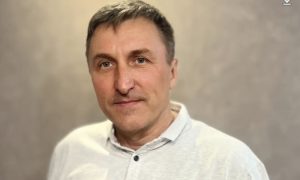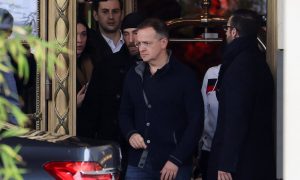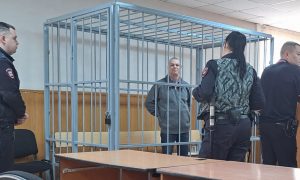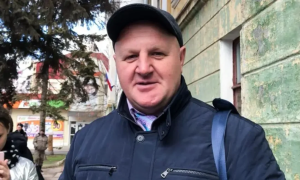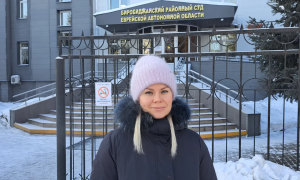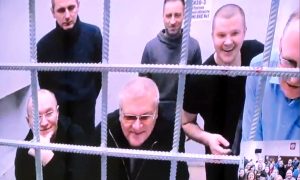Jehovah’s Witnesses continue to be tortured, and Russia is not following its UN Convention against Torture obligations to punish the perpetrators. After one victim complained, they were amazed “that it was the very same investigator [assigned to the complaint] as is conducting the criminal case [against the other Jehovah’s Witnesses].” Officials have repeatedly responded to Forum 18’s enquiries by either not answering its questions, or asserting that no torture took place or that a case has not been opened against the suspect torturers.
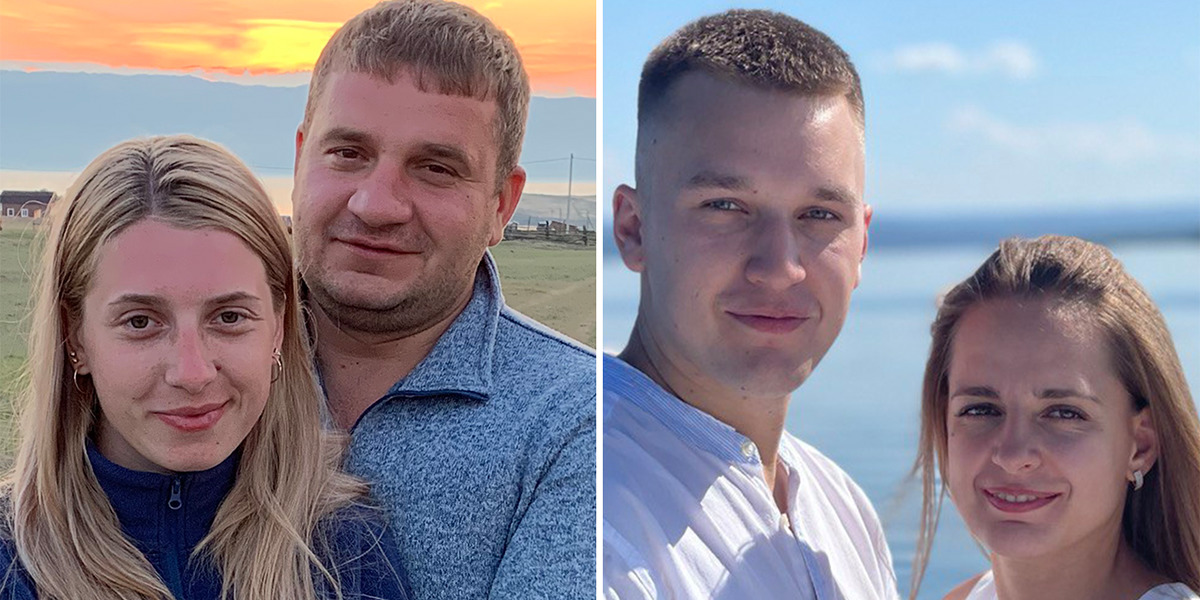
As raids on their homes and workplaces continue across Russia, Jehovah’s Witnesses have experienced more instances of torture and assault, during both initial searches and subsequent interrogation. Spokesperson Yaroslav Sivulsky described this as: “Unjustified, unmotivated cruelty against peaceful, unresisting believers”.
This brings to at least seven the number of such cases, involving multiple victims in different regions of the country, at every stage of prosecution from arrest to arrival in prison after conviction. Most victims have their injuries documented and make complaints to the Investigative Committee, prosecutors’ offices, and federal or regional human rights ombudspersons. No action is known to have been taken against any alleged perpetrators, however, in contravention of Russia’s international obligations under the UN Convention Against Torture (see below).
Torture by Russia’s security apparatus is common, with a long standing pattern of impunity for torturers. This includes those responsible for torturing Jehovah’s Witnesses and a Muslim who met other Muslims to study the works of theologian Said Nursi. In a case in Surgut the suspect torturers were given awards which were ostensibly for their work before the torture took place (see below).
Officials have repeatedly replied to Forum 18’s questions about torture by either not answering, or asserting that no torture took place or that a case has not been opened against the suspect torturers (see below).
In and around the Siberian city of Irkutsk on 4 October, National Guard troops forced one man into a stress position with his cuffed hands drawn upwards behind his back, while beating him, demanding information, and simulating rape with a bottle. In another household, a man was knocked unconscious and woke up to find officers beating him. Both men’s wives were dragged around their homes in handcuffs and suffered bruising and abrasions (see below).
After one of the torture victims complained, he was called in by the Investigative Committee to discuss his complaint. “What amazed me was the fact that it was the very same investigator [assigned to the complaint] as is conducting the criminal case [against the other Jehovah’s Witnesses]”, Anatoly Razdobarov told Forum 18 on 20 October. “He is unlikely to deal with our situation in an unbiased way”, Anatoly thinks (see below).
“This was a cruel, cowardly, and inhumane attack”, Jehovah’s Witness spokesperson Jarrod Lopes said on 9 October. “Sadly, this isn’t the first time National Guard officers or other Russian authorities have brutally assaulted or tortured Jehovah’s Witnesses .. Russian authorities have even routinely bullied elderly and frail Jehovah’s Witnesses, unjustly imprisoning them, imposing large fines, and branding them as criminals” (see below).
“Under Russian law, such flagrant abuse of power is a criminal offence”, jw-russia.org noted on 11 October. “In addition, the Russian Federation recognises the competence of several international bodies protecting people from torture. The Razdobarovs and Merinovs will use all available legal remedies, both domestic and international, in connection with these crimes” (see below).
In Voronezh (central Russia) in July 2020, three men were tortured by being beaten and also suffocated with plastic bags during interrogation, in attempts to force them to confess to “extremist” activity. Two other men described being beaten and kicked during a house search because they refused to divulge the passcodes to their phones (see below).
Forum 18 has written to the Irkutsk and Voronezh Regional Investigative Committees (which initiated the criminal cases against the Jehovah’s Witnesses), National Guard branches, and prosecutors’ offices, asking why officers used such violence against unarmed people who follow pacifist beliefs, whether the incidents were being investigated, whether the alleged perpetrators had been suspended from duty, and whether any criminal case had been opened against them. In most cases, no responses have been received (see below).
Ignoring international obligations
The United Nations (UN) Convention against Torture and Other Cruel, Inhuman or Degrading Treatment or Punishment defines torture as “any act by which severe pain or suffering, whether physical or mental, is intentionally inflicted on a person for such purposes as obtaining from him or a third person information or a confession, punishing him for an act he or a third person has committed or is suspected of having committed, or intimidating or coercing him or a third person, or for any reason based on discrimination of any kind, when such pain or suffering is inflicted by or at the instigation of or with the consent or acquiescence of a public official or other person acting in an official capacity”.
Under the Convention, Russia is obliged both to take into custody any person suspected on good grounds of having committed torture “or take other legal measures to ensure his [sic] presence”, and also to try them under criminal law which makes “these offences punishable by appropriate penalties which take into account their grave nature”.
Torture nevertheless remains common. The UN Committee Against Torture’s (CAT) Concluding Observations (CAT/C/RUS/CO/6) on Russia, released in August 2018, stated: “The Committee is deeply concerned at numerous reliable reports of the practice of torture and ill-treatment in the State party, including as a means to extract confessions, and at many recent reports documenting cases of torture. .. The Committee is also concerned at reports that allegations of torture rarely resulted in criminal prosecutions and that, even when prosecuted, the perpetrators were charged with simple assault or abuse of authority”. The CAT also urged Russia “to combat impunity in torture and ill-treatment cases”.
The CAT made its observations after video footage emerged of guards using truncheons to beat Yevgeny Makarov, an inmate at Yaroslavl’s Labour Camp No. 8, and pouring water over his head as he lay on a table.
There have been many other examples of torture by Russia’s security apparatus in recent years. Most recently, on 5 October 2021, the human rights group Gulagu.net (“No to the Gulag”) published videos apparently showing security officials sexually abusing inmates at a prison hospital in Saratov, and announced that it had received a large quantity of material showing torture at a number of prisons across the country. The Federal Prison Service (FSIN) and General Prosecutor’s Office have both announced investigations into the cases.
One in 10 people who replied to a survey of 3,447 adults from across Russia said they had been tortured by police and other security officials, according to a survey published on 27 June 2019 by the Levada Centre, an independent Moscow-based polling body. Three-quarters of adults who said they had suffered torture stated that they had been tortured to humiliate or intimidate them, half that they had been tortured to extract confessions, and a third that they had been tortured as a punishment.
Earlier torture cases, continuing impunity for torturers
Apart from the incidents in Irkutsk and Voronezh, Jehovah’s Witnesses have been tortured:
– in Moscow in November 2020. Moscow City Human Rights Ombudsperson’s Office, which had received a complaint about “the infliction of bodily harm on a 49-year-old citizen and his wife in the course of a search at a residential property”, told Forum 18 on 20 October 2021 that it had sent an appeal to the Moscow City Investigative Committee: “Thus, investigators will give proper legal assessment to the arguments of the applicants [Vardan Pegatosovich Zakaryan and his wife] during the investigation of the criminal case”.
Moscow City Prosecutor’s Office, to which Vardan Zakaryan also made a complaint, told Forum 18 in December 2020 only that “all appeals arriving at the city Prosecutor’s Office are considered under the established procedure and copies of replies are sent to the applicant”.
When Forum 18 enquired on 18 October 2021 as to the outcome of Zakaryan’s complaint, the Prosecutor’s Office replied that requests for information would only be considered if submitted through an online form. Forum 18 submitted an online request the same day but has as yet received no response to its questions.
– at an Orenburg prison camp in February 2020. Both the Federal Prison Service (FSIN) and Orenburg Regional Prison Service denied to Forum 18 that any torture had taken place.
A spokesperson for Orenburg Regional Prosecutor’s Office told Forum 18 in January 2021 that Orenburg Region Investigative Committee had refused to open a criminal case against the suspect torturers, but that Orenburg’s Central District Prosecutor’s Office had overturned this decision.
Forum 18 wrote again to the Regional Prosecutor’s Office on 18 October 2021 to ask whether a decision to prosecute had since been taken. No reply has yet been received.
– in Kaluga in June 2019. Kaluga Regional Prosecutor’s Office reviewed the incident, Kaluga Regional Human Rights Ombudsperson Yury Zelnikov told Forum 18 on 12 March 2020, and concluded that there was no evidence that FSB officers had used “illicit methods”. There has been no change since then, Jehovah’s Witness lawyers told Forum 18 on 19 October 2021.
– in Chita in February 2020. No individual or institution is known to have been punished for torture.
– and in Surgut in February 2019. Instead of being arrested and investigated, two of the Investigative Committee officials implicated in the torture of the Jehovah’s Witnesses were subsequently given awards, ostensibly for their work in 2018. Vladimir Yermolayev won “best local department head”, and Sergei Bogodyorov took second place in the “best investigator” competition. No individual or institution is known to have been punished for torture.
The Main Military Investigation Directorate (part of the Investigative Committee) is responsible for opening criminal cases against members of the FSB security service and National Guard, among other agencies. The main Investigative Committee is responsible for investigating and initiating criminal cases against its own personnel (Article 29 of the Law on the Investigative Committee of the Russian Federation), and against most police officers.
The Main Military Investigation Directorate did carry out investigations of the Surgut and Chita cases, Jehovah’s Witness lawyers told Forum 18 on 19 October, but refused to initiate criminal proceedings.
All the Jehovah’s Witnesses’ attempts to challenge these decisions in court have been unsuccessful, the lawyers added.
Forum 18 submitted an online information request to the Main Military Investigation Directorate on 20 October, asking whether all the Jehovah’s Witness torture cases had been investigated and whether criminal cases had been opened against any perpetrators. No reply has yet been received.
Yevgeny Kim, a Muslim prosecuted for meeting others to study the works of theologian Said Nursi, also suffered torture at the hands of fellow inmates at the instigation of guards on his arrival in pre-trial detention in Blagoveshchensk in December 2015.
In June 2019, Forum 18 wrote to the Human Rights Ombudsperson for Amur Region, Lyubov Khashcheva, to ask whether her office or the Regional Prosecutor’s Office had received any communication about Kim’s torture and whether a criminal case had ever been opened. Khashcheva replied that she had received no such communication and her office had no information about Kim’s time in pre-trial detention.
Yuliya Adusheva, head of the Press Service for Amur Regional Prosecutor’s Office, told Forum 18, also in June 2019, that the Prosecutor’s Office had received no reports of Kim’s torture and had not initiated any investigation or criminal case against suspect torturers.
Forum 18 sent these questions again to the Amur Region Human Rights Ombudsperson’s Office and the Amur Regional Prosecutor’s Office before the start of the working day of 11 March 2020. Ombudsperson Khashcheva replied on 12 March that she still had no information about Kim’s time in detention. Forum 18 has received no response from prosecutors.
The Federal Prison Service (FSIN) in Moscow did not reply to Forum 18’s questions. The Amur Region’s branch of the Prison Service accepts enquiries only from local media, referring all foreign and federal-level media to the Moscow headquarters.
No inmate or guard is since known to have been punished for torturing Kim.
Beginning at 06.00 in the morning on 4 October, over 100 armed OMON riot police and Investigative Committee personnel carried out 12 raids on Jehovah’s Witness homes in the city of Irkutsk and nearby villages. These were the first such actions in the Irkutsk Region, bringing to 67 the number of Russian federal subjects (out of 83) which have now seen criminal cases launched against Jehovah’s Witnesses.
A criminal case has been opened against seven people under Criminal Code Article 282.2 for “Organising” (Part 1), or “Participating in” (Part 2), “the activity of a social or religious association or other organisation in relation to which a court has adopted a decision legally in force on liquidation or ban on the activity in connection with the carrying out of extremist activity”. All but one of the seven remain in detention.
The four victims of torture do not appear to have been charged or named as suspects in the investigation, which is being led by the Irkutsk Region Investigative Committee.
In the early morning in the village of Novolisikha, OMON officers forced 31-year-old Anatoly Razdobarov to the floor with his hands cuffed behind his back, Jehovah’s Witnesses stated on 9 October. They kicked him in the head and kidneys, and pulled him upwards by his hands so as to “hyper-extend his shoulders”, while demanding that he incriminate himself and fellow believers and unlock his smartphone. Jehovah’s Witnesses also state that officers “threatened to sodomise him .. trying to push a glass bottle between his buttocks”. Razdobarov “was not allowed to get up for a long time, until he finally began to vomit”, jw-russia.org stated on 11 October.
Meanwhile during the early morning raid, riot police dragged Razdobarov’s wife Greta Razdobarova into another room by her hair, warning her that ” in a women’s [prison] colony, it’s worse than in a men’s one”, according to jw-russia.org. She was left handcuffed for half an hour before being permitted to dress.
The Razdobarovs had been visiting Greta’s sister, who was also in the house along with her husband and two young children. The raid, search, torture, and on-the-spot interrogation lasted some eight hours. Both Anatoly and Greta went to a forensic medical specialist to have their injuries – multiple bruises and abrasions – documented, Jehovah’s Witness lawyers told Forum 18 on 11 October.
Anatoly also lodged complaints about their treatment with the Investigative Committee, the Irkutsk Regional Prosecutor’s Office, and the federal Human Rights Ombudperson’s Office.
Anatoly has since been called in by the Investigative Committee to discuss his complaint, he told Forum 18 on 20 October, “and what amazed me was the fact that it was the very same investigator [assigned to the complaint] as is conducting the criminal case [against the other Jehovah’s Witnesses]”. “He is unlikely to deal with our situation in an unbiased way”, Anatoly thinks.
Elsewhere in Irkutsk, OMON riot police also raided the home of Liliya and Nikolay Merinov. They hit 23-year-old Nikolay in the face with “a heavy, blunt object” leaving him unconscious, Jehovah’s Witnesses stated on 9 October. When he came round, an officer was sitting on top of him and beating him, and his front teeth were broken. Officers also threw 27-year-old Liliya to the floor and dragged her into another room by her legs. She was then handcuffed and “subjected to physical violence”, jw-russia.org stated on 11 October.
Nikolay Merinov was taken away for questioning, but released late in the evening, apparently under no restrictions. He and Liliya both underwent medical examinations by a forensic medical expert and had their injuries documented.
“Under Russian law, such flagrant abuse of power is a criminal offence”, jw-russia.org noted on 11 October. “In addition, the Russian Federation recognises the competence of several international bodies protecting people from torture. The Razdobarovs and Merinovs will use all available legal remedies, both domestic and international, in connection with these crimes”.
Forum 18 wrote to the Irkutsk Region Investigative Committee, the Irkutsk Region’s branch of the National Guard (of which the OMON riot police is part) and the Irkutsk Region Prosecutor’s Office on 12 October, asking why officers had used such violence against unarmed people who follow pacifist beliefs, whether the alleged perpetrators had been suspended from duty and their actions investigated, and on what charge a criminal case would be opened against them. Forum 18 also put the same questions to the federal-level Investigative Committee and National Guard. No reply has been received.
Forum 18 also wrote to the office of federal Human Rights Ombudperson Tatyana Moskalkova on 12 October, asking whether she was investigating Anatoly Razdobarov’s complaint, when a conclusion might be expected, whether the OMON personnel involved had been suspended, and what charges might be brought against them. No reply has been received.
During raids on some other Irkutsk households, OMON officials broke windows and refused to allow occupants to get dressed, despite the cold early morning temperatures. “Later, the commandos realised that we were peaceful”, one Jehovah’s Witness commented to jw-russia.org. “They calmed down and even showed sympathy. Some time after the start of the search, they were already playing games on their phones, [and] one of them was even dozing”.
Most people who were taken in for questioning (including torture victim Nikolay Merinov), were later released. Investigators have had six men placed in detention for two months. Yaroslav Vasilyevich Kalin (born 30 April 1969), Sergey Vladimirovich Kosteyev (born 9 May 1960), Nikolay Aleksandrovich Martynov (born 26 August 1958), Mikhail Florovich Moysh (born 26 August 1987), and Aleksey Nikolayevich Solnechniy (born 28 March 1976) have been charged under Criminal Code Article 282.2 Part 1 (“Organisation of the activity of a social or religious association or other organisation in relation to which a court has adopted a decision legally in force on liquidation or ban on the activity in connection with the carrying out of extremist activity”).
Andrey Vladimirovich Tolmachyov (born 3 March 1975) has been charged under Criminal Code Article 282.2 Part 2 (“Participating in the activity of a social or religious association or other organisation in relation to which a court has adopted a decision legally in force on liquidation or ban on the activity in connection with the carrying out of extremist activity”).
Sergey Yevgenyevich Vasilyev (born 21 May 1951), who is under house arrest, has also been charged under Criminal Code Article 282.2 Part 2.
All seven were added to the Rosfinmonitoring “List of Terrorists and Extremists” on 8 October 2021. This blocks their bank accounts, and causes problems in finding formal employment, obtaining insurance, buying and selling property, and a range of other financial activities.
Five Jehovah’s Witnesses in Voronezh Region stated that they were tortured during and after the largest series of raids yet carried out. On 13 July 2020, Investigative Committee officials, FSB security service officers, and National Guard troops conducted more than 110 raids on homes, workplaces, and garages across the city of Voronezh, the towns of Borisoglebsk, Liski, Pavlovsk, Ramon, and Semiluki, and the villages of Nikolsky and Babyakovo, as well as in Stary Oskol in neighbouring Belgorod Region (which a Voronezh resident was visiting).
Of the five men who were tortured, two were later charged under Criminal Code Article 282.2 Part 1 (“Organisation of the activity of a social or religious association or other organisation in relation to which a court has adopted a decision legally in force on liquidation or ban on the activity in connection with the carrying out of extremist activity”) and one named as a suspect under Part 2 (“Participating in the activity of a social or religious association or other organisation in relation to which a court has adopted a decision legally in force on liquidation or ban on the activity in connection with the carrying out of extremist activity”), while the other two do not appear to be subjects of a criminal case.
A further eight people were also charged under Part 1. Investigators have submitted their case to the prosecutor’s office, but it has not yet reached court.
Investigators confiscated Bibles, personal diaries, postcards, photographs, computers, and phones, as well as, from one family, books of poetry by Joseph Brodsky and Bulat Okudzhava. At least 40 people were taken in for questioning at the Centre for Combating Extremism in Voronezh. A court ordered on 14 and 15 July 2020 that 10 men should be detained.
Yury Yuryevich Galka (born 28 October 1975) and Anatoly Gennadyevich Yagupov (born 11 October 1968) were among those whom investigators took away for questioning and later had placed in detention. They told a lawyer who visited them in custody that they had been suffocated with plastic bags and beaten in attempts to force them to “confess”.
“The torture began during the search and continued during interrogation”, jw-russia.org stated on 6 August 2020. Interrogators “twisted [Galka’s] arms behind his back and put a bag over his head, tightening it until Yury began to choke. During this time he was beaten, breaking his rib. He was required to confess to extremism and links with the Jehovah’s Witnesses”. Yagupov, Jehovah’s Witnesses say, was tortured in a similar manner.
Galka and Yagupov have been charged under Criminal Code Article 282.2 Part 1 (“Organisation of the activity of a social or religious association or other organisation in relation to which a court has adopted a decision legally in force on liquidation or ban on the activity in connection with the carrying out of extremist activity”).
Aleksandr Nikolayevich Korol (born 14 February 1991) stated that he suffered similar suffocation and beating techniques. He refused to give up fellow Jehovah’s Witnesses, “so one of the operatives put a plastic bag over his head and began to tighten it around his neck, blocking his air supply and asking who among the believers was the Elder”, jw-russia.org stated on 29 July 2020. “[This] was repeated several times until the plastic bag was torn. At the same time, Aleksandr was hit in the face several times. The security officer also threatened to use needles for torture”.
Korol was taken to a second location, where he was interrogated again, then transferred to a temporary detention centre about 40 km from Voronezh. He was released after 48 hours “with no explanation or apology”, and had to borrow money from passers-by to get back to the city. He was later named as a suspect under Criminal Code Article 282.2 Part 2 (“Participating in the activity of a social or religious association or other organisation in relation to which a court has adopted a decision legally in force on liquidation or ban on the activity in connection with the carrying out of extremist activity”), but no further action appears to have been taken against him.
Officers also beat Aleksandr Bokov (then aged 30) during the search of his home, and forced him to do squats and press-ups “until he was exhausted”, because he had refused to share the passcode for his phone, jw-russia.org stated on 16 July 2020. His friend Dmitry Katyrov (then aged 23), who arrived while the search was underway, was pushed to the floor and kicked, then also forced to unlock his smartphone with his fingerprint.
Investigators took both men in for questioning but later released them under no restrictions, and they were not charged or named as suspects in the criminal case.
All five torture victims managed to have their injuries recorded by doctors.
As well as Galka and Yagupov, Aleksey Stanislavovich Antyukhin (born 1 May 1976), Sergey Aleksandrovich Bayev (born 19 April 1973), Mikhail Nikolayevich Veselov (born 18 December 1968), Valery Ivanovich Gursky (born 23 December 1963), Vitaly Alekseyevich Nerush (born 31 May 1979), Stepan Viktorovich Pankratov (born 29 December 1995), Igor Anatolyevich Popov (born 23 July 1966), and Yevgeny Yuryevich Sokolov (18 July 1976) were all later charged under Criminal Code Article 282.2 Part 1 (“Organisation of the activity of a social or religious association or other organisation in relation to which a court has adopted a decision legally in force on liquidation or ban on the activity in connection with the carrying out of extremist activity”).
All 10 men were added to the Rosfinmonitoring “List of Terrorists and Extremists” on 11 August 2020. They all spent between three weeks and nearly five months in detention before being placed under house arrest or specific restrictions. They are now all under specific restrictions while awaiting trial.
Investigators also had Aleksandr Korol added to the Rosfinmonitoring “List of Terrorists and Extremists” on 27 August 2020, but did not place him under any restrictions. Though earlier named as a suspect, he does not appear to be facing trial.
Jehovah’s Witness lawyers told Forum 18 on 13 October 2021 that no criminal case on the facts of the torture had been initiated, and “no court proceedings, and accordingly, no compensation have followed”.
Forum 18 wrote to the Voronezh Region branch of the National Guard and the Voronezh Region Investigative Committee on 14 October, asking why they had used violence against unarmed people who follow pacifist beliefs, whether the alleged perpetrators had been suspended from duty and their actions investigated, and whether any criminal case had been launched against them, and if not, why not. Forum 18 put the same questions to the federal-level offices of both agencies on 15 October.
Forum 18 also asked the Voronezh Region Prosecutor’s Office, the Federal Human Rights Ombudperson’s Office, and the Voronezh Region Human Rights Ombudsperson’s Office on 14 and 15 October whether they had investigated the torture allegations and whether a criminal case had been opened, and if not, why not.
Major Olga Bovt of the Voronezh Region Investigative Committee’s press service responded on 15 October that “in the interests of the investigation, information on a criminal case is not subject to disclosure to persons who are not participants in the criminal proceedings”, as “Information coverage of investigative work is permissible only to the extent that it does not harm the interests of the investigation and is not associated with violation of the rights, freedoms and legitimate interests of participants in criminal proceedings”.
No response has been received from any of the other state agencies.
Voronezh Region Deputy Prosecutor Konstantin Kremnev replied on 20 October that the Prosecutor’s Office had received a number of complaints about the legality of the searches – and the use of physical violence. Kremnev stated that the searches had been carried out on the basis of court orders and prosecutors had found no legal violations, but that “In order to verify the arguments about the use of physical violence by FSB officers against A. Bokov, D. Katyrov, Yu. Galka, and others, these complaints were sent to the Military Prosecutor of the Voronezh Garrison as being under their jurisdiction, and with regard to the use of violence against the same persons by [Investigative Committee] employees, to the head of the Voronezh Region Investigative Committee, to organise the relevant checks”.
Kremnev added that Forum 18’s request for information had been passed on to these agencies.
No response has been received from the Voronezh Regional National Guard, or from either Human Rights Ombudsperson’s Office. (END)
